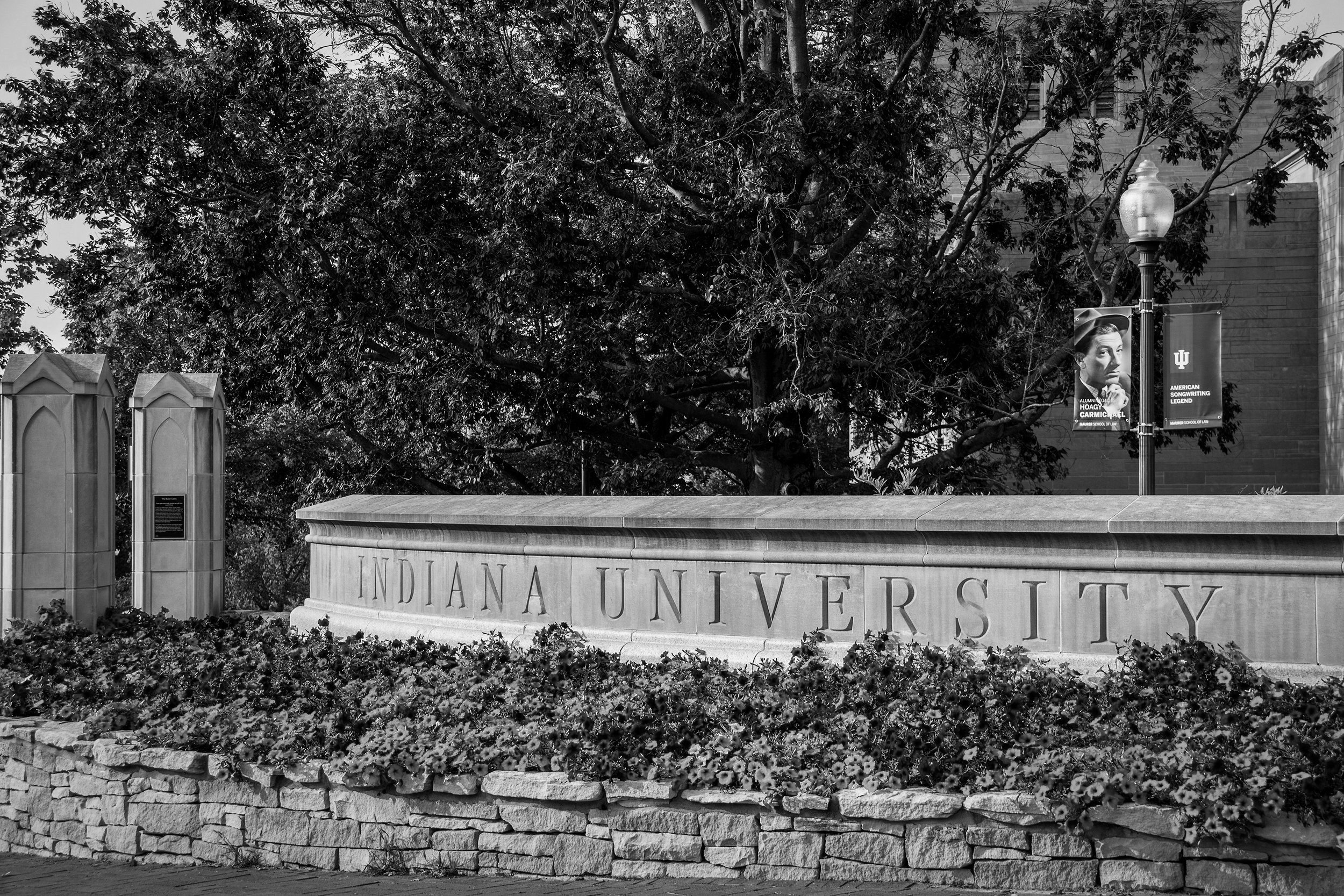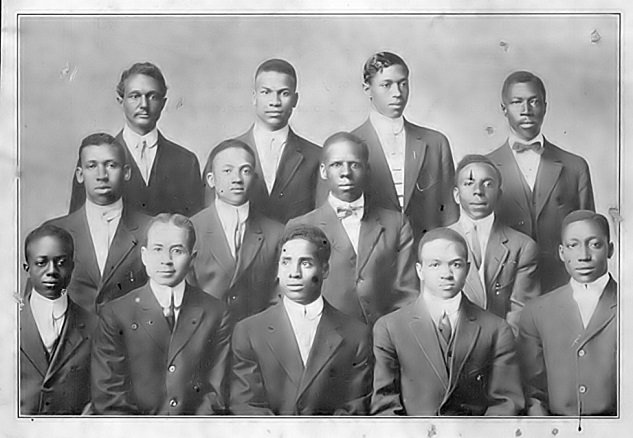
History of
Kappa Alpha Psi
A Brief History
Kappa Alpha Psi®, a college Fraternity, was born in an environment saturated in racism. The state of Indiana became the 19th state of the Union in 1816 and it founded Indiana University in Bloomington four years later. This city was largely populated by settlers from below the Mason-Dixon line and therefore found many sympathizers of the Southern cause. Consequently, the few Blacks who took up residence in Bloomington in those early years were socially ostracized and encountered extreme acts of prejudice and discrimination. The state of Indiana became a stronghold for the Ku Klux Klan. Their intolerance toward Blacks fueled the negative mindset of other Whites residing there. Vigilante lynchings of Blacks were commonplace. This environment made day-to-day life for Blacks an arduous task and attempts to successfully achieve in school, nearly impossible. Despite the growing hostility of Whites toward Blacks in Indiana, some Black students sought a college education at Indiana University, as it was a tuition-free university of the highest quality. However, few Blacks could remain longer than a year or so without having to withdraw in search of employment.
In the school years of 1910-11, a small group of Black students attended Indiana University. Two of these men, Elder Watson Diggs and Byron Kenneth Armstrong, had previously attended Howard University and had come into contact with men belonging to the only national Black Greek-Letter Fraternity currently in existence. Their experiences at Howard gave rise to the chief motivating spirits which sowed of the seed for a fraternity at Indiana University and crystallized the idea of establishing an independent Greek-letter organization.
Consequently, eight other men met with Diggs and Armstrong for the purpose of organizing such a fraternity. The charter members were Elder Watson Diggs, Byron K. Armstrong, John M. Lee, Henry T. Asher, Marcus P. Blakemore, Guy L. Grant, Paul W. Caine, George W. Edmonds, Ezra D. Alexander and Edward G. Irvin. The Founders sought one another’s company between classes and dropped by one another’s places of lodging to further discuss the means of formulating the fledgling fraternity in an effort to relieve the depressing isolation. They found that through these close interactions, they had common interests and a close bond began to emerge. The organization was given the temporary name of Alpha Omega, while they further developed the formation of the organization. Diggs presided as president, while Irvin was assigned as temporary secretary of Alpha Omega. The Fraternity would seek to raise the sights of Black youths and stimulate them to accomplishments higher than might otherwise be realized or even imagined.
On January 5, 1911, the Fraternity then became known as Kappa Alpha Nu, possibly as a tribute to the Black students of 1903 (the Alpha Kappa Nu Greek Society) who preceded them at Indiana University. These men of vision decided Kappa Alpha Nu would be more than another social organization. It would be the only Greek-letter organization founded with the concept of achievement. Kappa Alpha Nu began uniting college men of culture, patriotism and honor in a Bond of fraternity. Through their combined labors, the fraternity’s ritual and ceremonial forms, constitution, hymn and motto were created, and insignia and emblems were fashioned. Taking careful attention to detail and to ensure the fraternity was rooted in authenticity, Founder Diggs took courses in Greek heraldry and mythology and applied their combined knowledge to the development of these articles. The idealist, John Milton Lee also contributed significantly to the fledgling organization. For their works to establish the fraternity, Diggs was named permanent chairman, Lee was designated as secretary and Armstrong as sergeant-at-arms. These three Founders are credited with guiding the infant Fraternity through the most perilous years of its life. Able assistance provided by each of the remaining Founders furnished necessary sustenance for the embryonic group. Kappa Alpha Nu became the first incorporated Black Fraternity in the United States once granted a charter by the Indiana Secretary of State on May 15, 1911.
Born out of the vestiges of racism, Kappa Alpha Nu encountered another metamorphosis, partially related to action of bigotry. One day as one of the Fraternity members, Frank Summers, was running the hurdles, Founder Diggs overheard a white student state, “He's a member of Kappa Alpha Nig”. There was an additional misunderstanding being attributed to the acronym of the Fraternity’s Greek letters, KAN. Some confused the abbreviation of the letters to refer to the state of Kansas. The name of Fraternity and the image it portrayed was of paramount importance. These incidents caused the Founders to change the name of the Fraternity. The Greek Letter Ψ was chosen in place of N and the Fraternity acquired a distinctive Greek letter symbol and Kappa Alpha Psi® thereby became an indistinguishable Greek-letter Fraternity. The name was officially changed to Kappa Alpha Psi on a resolution adopted at the Grand Chapter Meeting in December 1914. This change became effective April 15, 1915.
Kappa Alpha Psi®, now comprised of functioning Undergraduate and Alumni Chapters on major campuses and in cities throughout the country, is the crystallization of a dream. It is the beautiful realization of a vision shared commonly by the late Revered Founders that enabled them to sow the seed of a fraternal tree whose fruit is available to, and now enjoyed by college men everywhere, regardless of their color, religion or national origin.
Kappa Alpha Psi® proudly boasts of members who epitomize the very essence of Achievement in Every Field of Human Endeavor. Some of these members include: Ralph Abernathy, Wilt Chamberlin, Montell Jordan, Benjamin Jealous, Oscar Robertson, Cedric "the Entertainer" Kyles, Arthur Ashe, Mike Tomlin, Gayle Sayers, Adrian Fenty, Robert S. Abbott, Bennie Thompson, Donald Byrd, Johnnie Cochran, Ed Gardner, Smokie Norful, John Singleton, Tom Bradley, Bob Johnson, John Conyers, Alcee Hastings, Lerone Bennett, Jr., Kwame Jackson, Bill Russell, Tavis Smiley, Marvin Sapp, and Colin Kaepernick to name a few.





